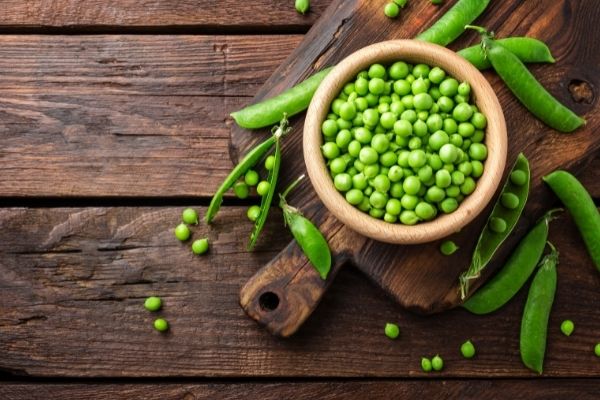Have you been told that whey protein is the best supplementation source for strength and muscle gains, as well as weight loss? While whey has earned its place in the fitness and supplementation market, a new study reports that vegetable pea protein may have its own advantages to training. Other studies make its claim on weight loss.
With the new reports, pea protein is gaining popularity quickly. Food manufacturers enjoy the cost-effectiveness of pea protein, which also benefits you as the consumer. Additionally, the athletic and fitness communities enjoy pea protein’s amino acid profile which is rich in leucine, arginine, and glutamine – the structures that make up protein to build the body and keep it healthy.
New Research on Muscle Gain and Strength
In a 2015 study published in the Journal of the International Society of Sports Nutrition, both pea and whey proteins promoted the same muscle and strength gains.[1] Volunteers of the study were made up of 161 men aged 18 to 35 who were formed into three groups: protein, whey, and placebo. After being broken into their designated groups, the young men underwent resistance training for the upper body – specifically arms. They also ingested 25 grams of protein or a placebo twice per day. After 12 weeks, results showed significant muscle gain and strength in the pea protein group compared to the placebo group – especially for the men who were just starting out or returning to exercise. According to the study, the pea protein group measured up to whey’s standards.
Stop the Sugar Cravings and Hunger Pangs
Vitamin Rich Health Beverages
In general, protein can curb appetite. The effects of pea, whey, and milk proteins were studied for changes in hunger, satiety, and intervals between meals. The pea protein group won on all three levels compared to whey. With higher satiety, pea protein supplementation may also promote weight loss according to studies published in the International Journal of Obesity and Nutrition Journal. [2]/[3]
Other Benefits of Pea Protein that Outweigh Whey
Both pea and whey proteins are great for providing the body with amino acids. However, pea protein has many advantages over whey-based dietary products. This animal-free protein is a great alternative for vegetarians and people who have an allergy or intolerance to dairy products. The Trilogy Medical Centers for Integrative Medicine recommends a natural pea protein isolate that offers a high level of functionality and nutritional benefits. Non-genetically modified yellow peas are grown in North America and produced naturally without chemicals. They are also easily digestible, gluten and fat-free, and dissolve efficiently when mixed with water.
Summary
With its many advantages, you may find pea protein to be a better supplement source for your needs. It’s also a great source of energy when you’re on the go or after your workout. Just mix it up and go, or add it to your favorite veggie or fruit smoothies.
[1] Babault, N., Paizis, C. & Deley, G., et al. (2015). Pea Proteins Oral Supplementation Promotes Thickness Gains During Resistance Training: A Double-Blind, Randomized, Placebo-Controlled Clinical Trial vs. Whey Protein. Journal of the International Society of Sports Nutrition, 12(3). doi: 10.1186/s12970-014-0064-5.
[2] Diepvens, K., Haberer, D. & Westerterp-Plantenga, M. (2008). Different Proteins and Biopeptides Differently Affect Satiety and Anorexigenic/Orexigenic Hormones in Healthy Humans. International Journal of Obesity, 32, 510-518. doi: 10.1038/sj.ijo.0803758.
[3] Abou-Samra, R., Keersmaekers, L. & Brienza, D., et al. (2011). Effect of Different Protein Sources on Satiation and Short-Term Satiety When Consumed as a Starter. Nutrition Journal, 10(139). doi: 10.1186/1475-2891-10-139.

